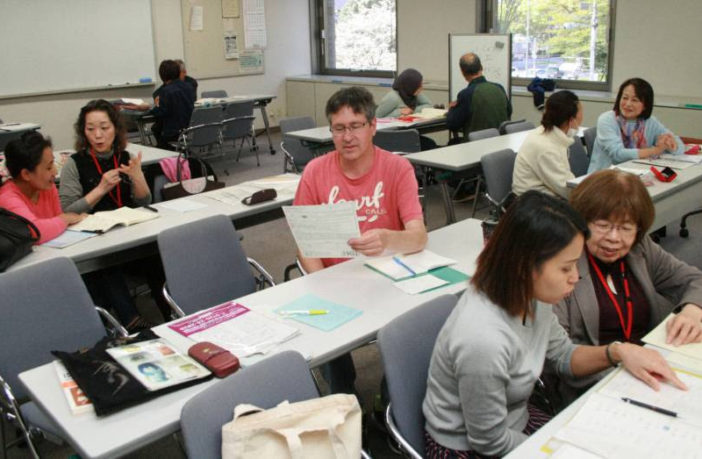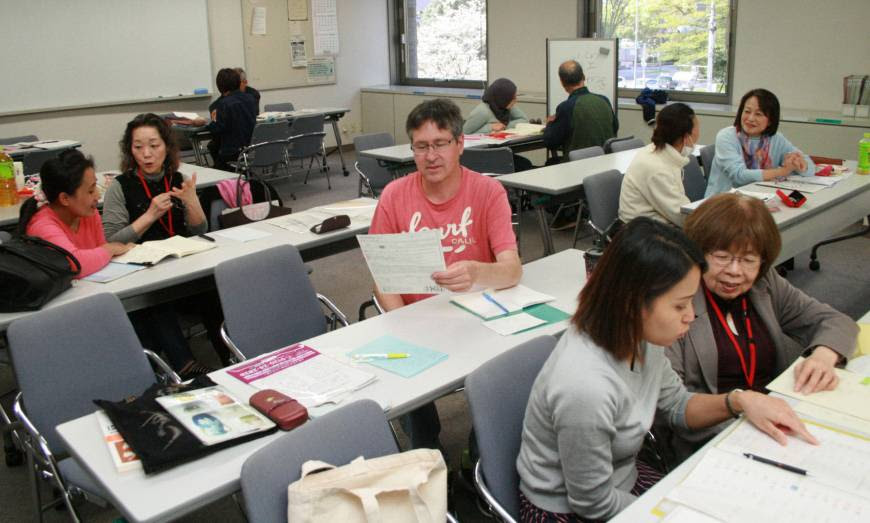The Japan Times
Chunichi Shimbun
Students attend a Japanese language class organized by Aichi Prefectural Government’s international exchange association in Naka Ward, Nagoya. | CHUNICHI SHIMBUN
The Aichi International Plaza Japanese Class organized by the Aichi International Association in the Sannomaru Annex Building of the Aichi Prefectural Government in Nagoya, Aichi Prefecture, is celebrating its 20th anniversary.
The teachers are volunteers who do not get paid. The program gained popularity for offering small and inexpensive classes, providing the opportunity for cultural exchanges at a grass-roots level in the governmental office quarter.
“This is called a ryō-shū-sho (receipt). Repeat after me,” a teacher said to a male Korean student one Friday afternoon. She had just received payment from the student and was holding a receipt.
Even if the teachers speak English, Korean or other languages, they try to use only Japanese as much as possible in class.
“(I only use Japanese with them) because I want to create an environment where the students can focus on studying Japanese,” explained Kumi Fujisawa, 68, one of the teachers.
Classes are mostly conducted one-on-one; at most, the teachers take on up to three students at a time. They prepare the learning materials according to the student’s level or use the materials that the students brought.
The 2018 classes began in mid-April, with 55 registered volunteers teaching 100 to 150 students. The fee is ¥2,000 every three months and students can sign up for 1.5 hours of class every week.
Over 9,100 people have attended classes through this program from its establishment in 1999 to the end of the 2017 academic year.
Most of the students come from neighboring countries, including China and South Korea, but there were also many students from South American countries such as Brazil. In recent years, more students have come from Southeast Asia, including Vietnam and the Philippines, as well.
Fujisawa has been teaching for 11 years, and she began studying Arabic because she had many students from Islamic countries. She also became close friends with a student from Morocco, who invited her to visit the country.
“I’m happy to see their Japanese skills improve, of course, but I’ve also enjoyed finding out the different cultures from various countries,” she said.
Satoshi Onishi, 71, who used to be the deputy mayor of Nagoya, had also been volunteering as a teacher since the time when he worked in a private company.
“Twenty years is a milestone. I want to work with the teachers and make the classes livelier,” he said.
This section, appearing Tuesdays, features topics and issues from the Chubu region covered by the Chunichi Shimbun. The original article was published on April 20.








